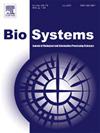Cancer memory as a mechanism to establish malignancy
IF 2
4区 生物学
Q2 BIOLOGY
引用次数: 0
Abstract
Cancers during oncogenic progression hold information in epigenetic memory which allows flexible encoding of malignant phenotypes and more rapid reaction to the environment when compared to purely mutation-based clonal evolution mechanisms. Cancer memory describes a proposed mechanism by which complex information such as metastasis phenotypes, therapy resistance and interaction patterns with the tumor environment might be encoded at multiple levels via mechanisms used in memory formation in the brain and immune system (e.g. single-cell epigenetic changes and distributed state modifications in cellular ensembles). Carcinogenesis might hence be the result of physiological multi-level learning mechanisms unleashed by defined heritable oncogenic changes which lead to tumor-specific loss of goal state integration into the whole organism. The formation of cancer memories would create and bind new levels of individuality within the host organism into the entity we call cancer. Translational implications of cancer memory are that cancers could be engaged at higher organizational levels (e.g. be “trained” for memory extinction) and that compounds that are known to interfere with memory processes could be investigated for their potential to block cancer memory formation or recall. It also suggests that diagnostic measures should extend beyond sequencing approaches to functional diagnosis of cancer physiology.
癌症记忆是恶性肿瘤形成的机制。
与纯粹基于突变的克隆进化机制相比,在致癌过程中的癌症在表观遗传记忆中保存了信息,从而可以灵活地编码恶性表型,并对环境做出更迅速的反应。癌症记忆描述了一种拟议的机制,通过这种机制,转移表型、耐药性以及与肿瘤环境的相互作用模式等复杂信息可能会通过大脑和免疫系统记忆形成机制(如单细胞表观遗传变化和细胞组合中的分布式状态改变)在多个层面上进行编码。因此,癌症发生可能是生理多层次学习机制的结果,这种机制是由确定的遗传性致癌变化释放出来的,它导致肿瘤特异性目标状态整合到整个机体中的损失。癌症记忆的形成将在宿主生物体内创造并结合新的个体层次,形成我们称之为癌症的实体。癌症记忆的转化意义在于,癌症可以在更高的组织水平上参与(例如,接受记忆消亡的 "训练"),而且可以研究已知会干扰记忆过程的化合物,看它们是否有可能阻止癌症记忆的形成或回忆。它还表明,诊断措施应超越测序方法,扩展到癌症生理学的功能诊断。
本文章由计算机程序翻译,如有差异,请以英文原文为准。
求助全文
约1分钟内获得全文
求助全文
来源期刊

Biosystems
生物-生物学
CiteScore
3.70
自引率
18.80%
发文量
129
审稿时长
34 days
期刊介绍:
BioSystems encourages experimental, computational, and theoretical articles that link biology, evolutionary thinking, and the information processing sciences. The link areas form a circle that encompasses the fundamental nature of biological information processing, computational modeling of complex biological systems, evolutionary models of computation, the application of biological principles to the design of novel computing systems, and the use of biomolecular materials to synthesize artificial systems that capture essential principles of natural biological information processing.
 求助内容:
求助内容: 应助结果提醒方式:
应助结果提醒方式:


